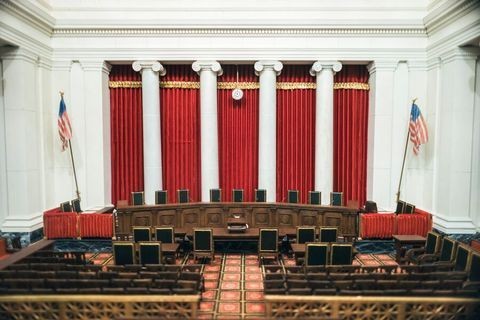DC’s Prescription Drug Excessive Pricing Act Federally Preempted
Client Alert | 1 min read | 08.03.07
In BIO et al. v. District of Columbia et al. (case no. 2006-1593, Fed. Cir. 2007), a Federal Circuit panel declares the District of Columbia’s Prescription Drug Excessive Pricing Act (“the Act”) preempted by the federal patent laws. The Act makes it unlawful for any drug manufacturer or licensee to sell or supply for sale or impose minimum resale requirements for a patented prescription drug that results in the prescription drug being sold in the District for an “excessive price”, a term not specifically defined. Instead, it provides that excessive pricing exists where the wholesale price of a patented prescription drug in the District is over 30% higher than the comparable price in any high income country in which the product is protected by patents or other exclusive marketing rights, e.g., in the United Kingdom, Germany, Canada or Australia. The Act also provides for both public and private enforcement as well as a wide array of remedies, including but not limited to, temporary, preliminary, or permanent injunctions to enjoin the sales of prescription drugs in the District at excessive prices, fines, damages, including treble damages, and attorney’s fees.
The panel notes that, while there is no express provision in the patent statute that prohibits states from regulating the price of patented goods, state law must yield to congressional enactments if it stands as an obstacle to the accomplishment and execution of the purposes and objectives of Congress. In the federal patent statute, Congress strikes a balance between rewarding innovation and providing free consumer access by placing limitations on the scope of a patentee’s exclusionary power, the duration of the patent term and the conditions for patentability. The Act attempts to shift that balance, says the panel, penalizing high prices and limiting the full exercise of the market power that derives from a patent. Thus, the District is seen as having attempted to change federal patent policy within its borders.
Insights
Client Alert | 6 min read | 02.27.26
The U.S. Supreme Court’s February 20, 2026, opinion in Learning Resources. v. Trump (decided with Trump v. V.O.S. Selections), holding that the President lacks authority to impose tariffs under the International Emergency Economic Powers Act (IEEPA), is notable for many reasons — including its practical impact on the many U.S. companies who paid steep tariffs on global imports and may now be able to recover by filing suit before the Court of International Trade (CIT). That possibility and the key reasons for the High Court’s decision are discussed in our recent alert on this momentous decision.
Client Alert | 4 min read | 02.27.26
New Jersey Expands FLA Protections Effective July 2026: What Employers Need to Know
Client Alert | 3 min read | 02.26.26
Client Alert | 4 min read | 02.26.26


